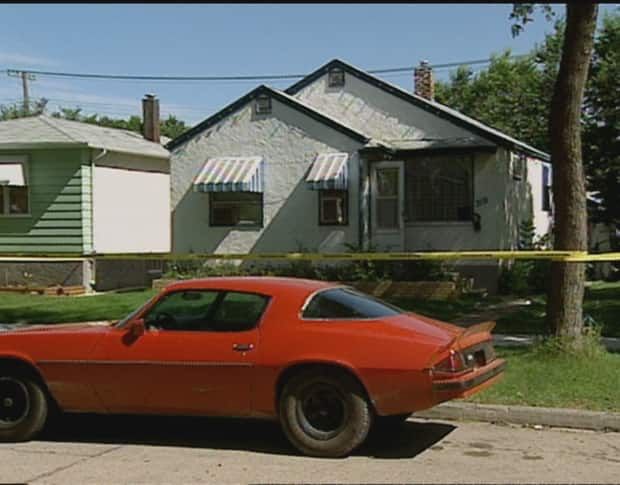Manitoba man who spent decades in prison will get appeal after likely miscarriage of justice, minister says

A Manitoba man who spent more than two decades behind bars before being granted parole is getting another chance to overturn his murder convictions.
Robert Sanderson's case has been referred for a new hearing in the Manitoba Court of Appeal after federal Justice Minister David Lametti determined it likely involved a miscarriage of justice.
"The justice minister's decision is a big step for me," Sanderson told CBC News in an interview on Monday. "That's going to help in my journey, and that's what I'm looking forward to, is what comes next."
Sanderson was found guilty of three counts of first-degree murder in 1997. He was sentenced to life in prison with no parole eligibility for 25 years in connection with the killings of Jason Gross, Russel Krowetz and Stefan Zurstag on Aug. 6, 1996.
The Manitoba Court of Appeal dismissed Sanderson's appeal in 1999, and he was denied leave to appeal to the Supreme Court of Canada later that year, the Department of Justice said in a Monday news release.
Sanderson applied for a ministerial review of his case in 2017. The following year, his request to be released on bail pending completion of that review was denied. He was released on full parole shortly after that, the release said.
Two other men, Roger Sanderson and Robert Tews, were also convicted in the fatal torturing, stabbing and shooting of the three men in 1996. Police said at the time the killings were part of a gang turf war over control of prostitution in Winnipeg.
The justice minister has the power to order a new trial or appeal as long as they're satisfied there's a reasonable basis to conclude there was likely a miscarriage of justice, the release said.

A key consideration in that process is whether the application is supported by new matters of significance — typically information that wasn't available to the courts during a person's trial or appeal, according to the release.
"It is not a decision about the guilt or innocence of the applicant, but rather a decision to return the matter to the courts where the relevant legal issues may be determined according to the law," the release said.
"When a matter is returned for a new appeal, an applicant's conviction is maintained and they bear the burden of establishing that errors requiring intervention may have occurred."

Sanderson said he's excited and relieved about the news, but the family members who stood by his side through his time in prison have passed away, making it a bittersweet time in his life.
"I'm still excited, but I can't share it with them," he said.
Flawed testing in separate cases
Police found a hair on the foot of one of the victims and claimed a type of lab analysis, known as hair microscopy, showed it belonged to Sanderson.
The same type of hair testing also led to the conviction of James Driskell and Kyle Unger in separate Winnipeg murder cases in the early 1990s.
But in the mid-2000s, more advanced DNA tests revealed the hair samples didn't match any of the three men, casting doubt on the reliability of the original hair testing method.
Driskell was released and later received $4 million in compensation. The province also backed a federal review of Unger's case and he was released more than a decade ago.
In 2005, the Manitoba government said there was no "obvious miscarriage of justice" and that it wouldn't endorse a federal review of Sanderson's conviction as it did for Unger, in part because a review found there was still ample circumstantial evidence incriminating Sanderson.
Sanderson applied for a ministerial review of his case anyway. In 2018, the federal department of justice determined there may be a reasonable basis to conclude that a miscarriage of justice had occurred.
Innocence Canada took up Sanderson's case and said DNA evidence emerged after his conviction that significantly undermined the prosecution's case.
The group applied for the federal justice minister's review.
"The minister's decision to refer his case for a rehearing in the Manitoba Court of Appeal is a huge step for Mr. Sanderson in his quest to clear his name," Innocence Canada lawyer James Lockyer said in a written statement Monday.

